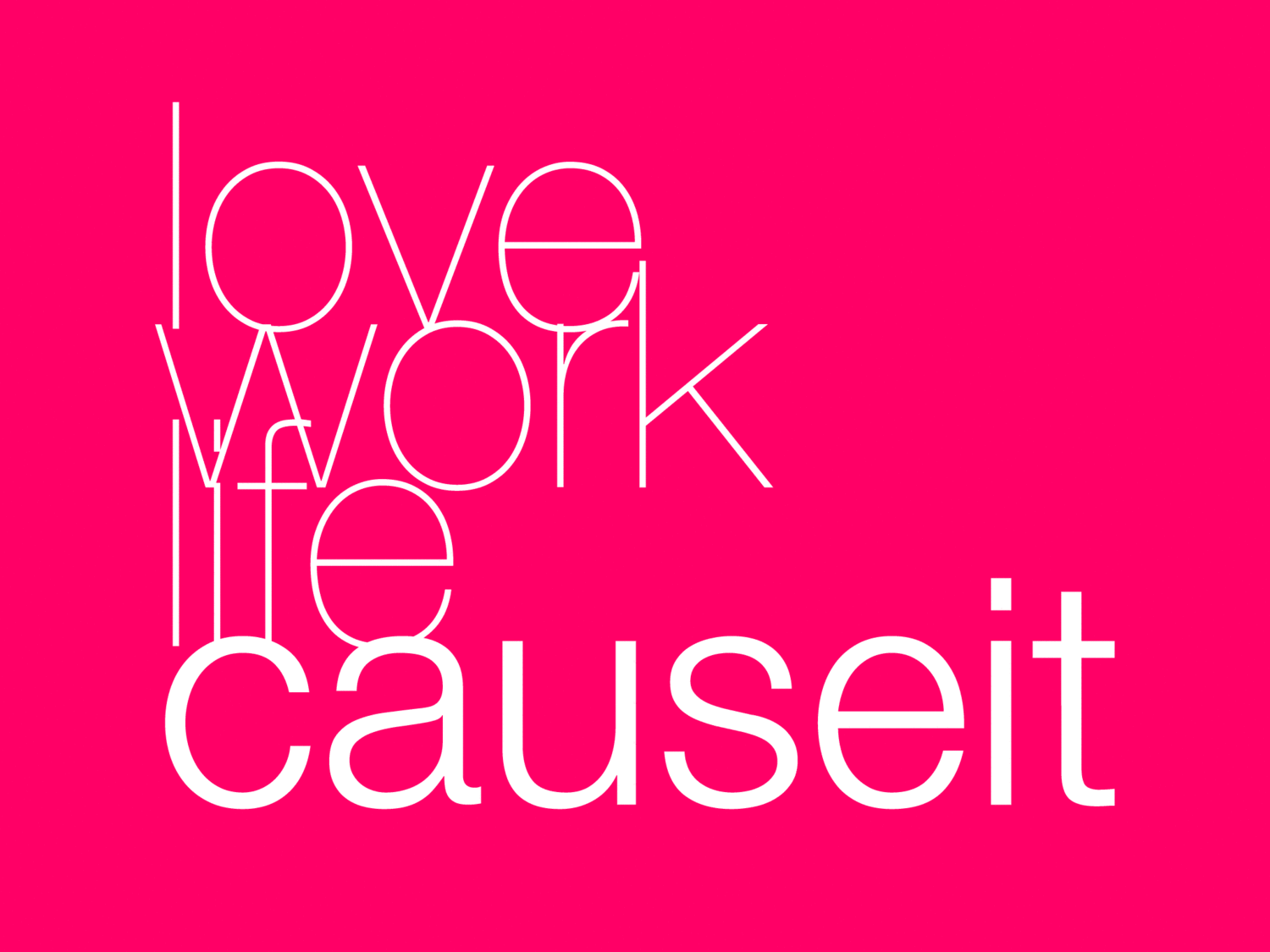Causeit has expertise on a range of topics related to digital business, innovation, and the future of humans and technology.
For each topic in our portfolio, you can choose an offering that matches your budget and your calendar—from one hour keynotes to multi-month journeys which bring new offerings to fruition.
Topics and Areas of Expertise
Digital Business: Full-Spectrum Innovation
Digital businesses are easy to talk about, but hard to build. In an age of big data, fickle customer bases and previously impossible levels of scale, strategic partnerships are a necessity. What are the broader shifts—from government to user experience—that are enabling successful digital innovation? How can your company tap into the full spectrum of innovation through strategic partnership and multi-sided platforms—without straying from your core organizational DNA? Check out the “Full-Spectrum Innovation” article in our Field Guide to Creating Cultures of Innovation for a sample of this content.
Future Thinking for the Cyborg Age
Smart companies realize that the playbooks of today won't apply in the world of tomorrow. Fundamentally new paradigms for value, talent and even what constitutes a 'company' are changing the game as major disruption occurs in nearly every industry and the worlds of humans and machines converge. Using tangible examples from the front lines of the IoT, automotive, health and smarter cities fields, learn how to rethink what's possible in your own firm with tangible models for assessing business and cultural landscapes of the future.
Storytelling for Innovators: How to Talk about Your Great Ideas
One of the biggest challenges that innovators face is pitching new ideas to stakeholders, potential partners, and decision-makers. To secure funding and support for new projects, innovators must tell a story that highlights potential for new value, explains how the idea fits into the company’s long-term strategy, and clearly attends to potential business models, risks and resource needs.
How can you create and tell stories that do all that without losing the excitement and creative spark that makes your idea truly shine? Learn to use innovation theory, futurism, digital business thought models, and simple storytelling tools to inspire and enroll even the most skeptical stakeholders.
Enabling Value: the Multi-Sided Platform Business Model
Multi-sided platforms (MSPs)—the business model and strategy at the core of digital business successes like the iOS and Android ecosystems—are defined by the choice to provide a central platform which enables partners to create new value on top of it. The cost and risk of innovation is thus shared between very large firms and small, agile developers, and the value provided to customers grows exponentially. How can an MSP stay secure and stable with so many contributors? How is IP and competition managed? Can the MSP model thrive in every industry and domain? Explore these questions and learn how to think about shared risk and value in a new way uniquely suited to digital business innovation.
It’s Not Who You Are, It’s How You Think: Thinking Styles in Modern Workplaces
Diversity of thought is important to any team, especially when successful innovation is your goal. When you collaborate with people who think like you do, you resonate—becoming a ‘sounding board’ for each others’ best ideas. When you work with people who think differently than you do, you complement—stretching each others’ view of a situation to find and sort useful new approaches to a problem. Using the thinking styles model developed by Mark Bonchek and Elisa Steele, leaders can strategically foster innovation by creating teams and thought partnerships that leverage everyone’s “genius zone”. For a primer on thinking styles in the context of thought leadership and strategy, see our article “Being a Thought Partner” in our Field Guide to Creating Cultures of Innovation.
Power Dynamics in Innovation
Once the glow of an “aha!” moment fades, the potential of innovative new offerings is often undermined by organizational power dynamics. In this exploration, we discover how team relationships of “power over” or “power under” can be transformed into alignment, or “power with.” The ongoing practice of creating alignment around a big vision—rather than acquiescing to or rebelling against what the leadership says—is vital to getting ideas into the real world. You can read our article about Agency in Innovation in our Field Guide to Creating Cultures of Innovation.
The Four Seasons of Innovation: From Seed to Harvest
The cycle of innovation from idea to success mirrors the seasons of cultivation which put food on our table. In each stage—winter, spring, summer and fall—new skills are needed, and new challenges emerge. Learn how to pick your innovation ‘seeds,’ plant them, help them take root and harvest a full crop in this visually rich presentation which covers the team, cost and creativity implications for each season of creating new value.
The Social Network of Things: The Internet of Things Evolved
Explore what happens as the Internet of Things trends toward devices imbued with artificial intelligence and decision-making abilities. Learn about impacts on culture, business strategy, ethics and talent in a world where our devices have their own social networks. For an idea of the concepts, check out the “Social Network of Things” article in our Field Guide to Creating Cultures of Innovation.
The Future of Automobility: Beyond the Connected Car
The smart cities of our future promise efficiency, safety and ease—in exchange for entrusting our most critical infrastructure to highly-networked systems. Cities will require creation of secure, accessible, multi-sided platforms which connect many modes of transit and form new networks of mobility with features beyond what industry can offer now. We must think about how to solve for the issues inherent in implementation of not just 'robot cars,' but also multimodal, 'door to door' transportation and the potential shift in the automotive industry from vehicle production to automobility as a service.
Liability in the Cyborg Age
Who will be held responsible if an automated vehicle causes a fatal accident? How will we balance the risks and benefits of implanted medical devices which are networked and remotely controlled? What happens when a sentient AI makes a decision that has legal repercussions? To take advantage of the benefits of cutting edge technology, we must consider new ways of thinking about liability and risk. Explore new definitions of personhood, responsibility, privacy and security in this interactive session focused on the legal and ethical challenges of AI, IoT, and human-machine convergence.
Digital Financial Platforms: The Future of Digital Banking
Whether because of regulation or complexity, many financial institutions have not yet tapped into the transformative potential of digital platforms—but disruptive startups have. An opportunity exists for large companies to take on innovation in the financial services industry in a new way, designed to include, rather than resist, small, disruptive players. Why not create something compatible with other financial players? What role will traditional financial institutions play in emergent models like crowdfunding and mobile-to-mobile payments? For a self-guided tour through these ideas, read Digital Financial Platforms: The Evolution of Personal Finance in the Field Guide to Creating Cultures of Innovation.
Data Ethics
Data is a hot topic for 21st century governments and businesses, from how to monetize it to considerations about who truly owns data and how that ownership is shared or transferred. Smart technology, healthcare breakthroughs and improved security are just a few of the benefits that digital data collection and analysis offer. But how do we balance the opportunities with the risks to our privacy? If customers are being asked to pay for service by conceding ownership of their data, do they truly understand the price they are paying? Are older models of anonymizing information and restricting use sufficient for the increasing complexity and chaos that comes with the Internet of Things? Join us to explore the ethical implications of data as a commodity and as currency.

